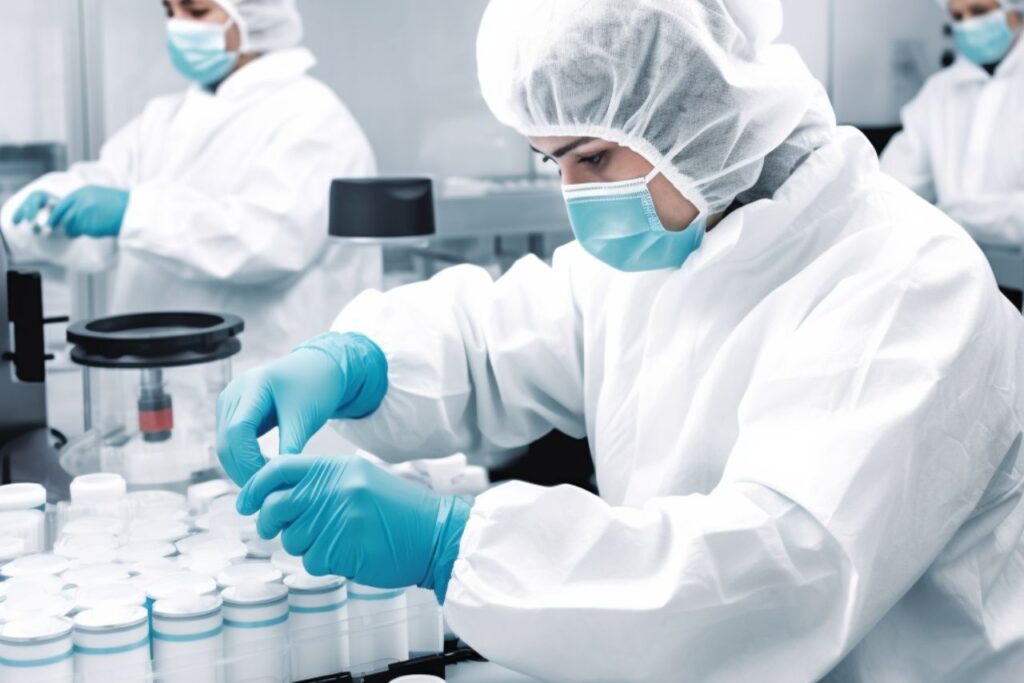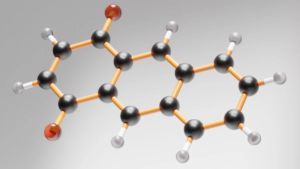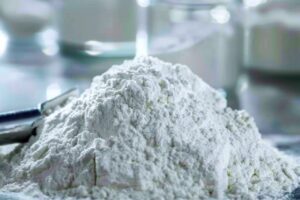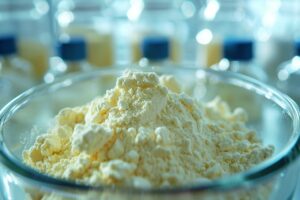Curious about Tryptophol in the body? Its path is often unclear. This lack of detailed knowledge can make it hard to understand its full effects. We will look into what scientists currently know about it.
Tryptophol's metabolic fate isn't fully mapped out yet. It is generally believed to be converted into indole-3-acetic acid. Another possibility is that it undergoes glucuronidation so the body can excrete it. However, detailed information on its stability within living systems is still being researched.

Now that we've touched on Tryptophol, it's helpful to understand its precursor, tryptophan. Tryptophan's journey in the body is much more studied. This knowledge can shed light on related compounds like Tryptophol. Let's explore some key questions about this essential amino acid. This will help us build a better foundation of understanding.
What is the metabolic role of tryptophan?
Tryptophan is vital for us, but what exactly does it do? If we don't have enough, it affects many body functions. Understanding its roles is very important for appreciating why we need it.
Tryptophan is an essential amino acid, meaning our bodies can't make it. It's crucial for building proteins. It also acts as a precursor to serotonin (which affects mood), melatonin (which regulates sleep), and niacin (vitamin B3). These functions impact various bodily processes.

Tryptophan is much more than just a simple building block for proteins. In my journey of learning, I've found that understanding the basic components, even biological ones, often helps in solving broader problems. This amino acid plays several critical roles in our bodies. You can think of it as a fundamental raw material. Our system then cleverly converts it into other vital compounds.
First, tryptophan is an essential amino acid. This means our bodies cannot produce it on their own. We must get it from the food we eat. It's a fundamental component used to build and repair tissues throughout our body. I remember when I was first learning about material compositions in my early factory days; understanding the base elements was absolutely crucial for any successful outcome.
A significant portion of the tryptophan we consume is converted into serotonin1. Serotonin is a neurotransmitter. It's often called the "feel-good" chemical because it plays a big part in regulating our mood, appetite, and sleep patterns. From there, serotonin can be further converted into melatonin. Melatonin is a hormone primarily known for regulating our sleep-wake cycles, also known as our circadian rhythm. I’ve found that understanding these interconnected pathways is quite fascinating. It’s like a well-designed manufacturing process where one step seamlessly leads to the next.
Tryptophan can also be converted into niacin, which is vitamin B3. Niacin is very important for energy metabolism and for repairing our DNA. This pathway becomes especially important if our dietary intake of niacin is low.
Finally, the majority of tryptophan is metabolized through what's known as the kynurenine pathway2. This pathway produces several different molecules. These molecules are involved in processes like inflammation and our immune responses. Some of these products can also be neuroactive, meaning they can affect brain function. Understanding these diverse roles really shows how one single substance can have such a wide-reaching impact on our overall health. It’s a bit like a key ingredient in a very complex recipe, where its presence or absence changes everything.
What disorders are associated with tryptophan metabolism?
Problems with tryptophan can lead to significant health issues. When there are imbalances, various disorders can arise. Recognizing these connections is important for our overall well-being and for finding solutions.
Issues with tryptophan metabolism can cause Hartnup disease, which affects its absorption. They can also lead to pellagra, a niacin deficiency. Mood disorders can arise due to imbalances in serotonin or melatonin. Problems here can also affect immune responses.

When the metabolism of tryptophan doesn't work as it should, it can lead to several health problems. It's similar to when a critical component in a manufacturing process fails; the entire output can be negatively affected. In my years in the mold industry, I’ve seen how very small changes or errors in a mold design can lead to big product defects. Biology, in many ways, has similar sensitivities to such disruptions.
Here are some specific disorders that have been linked to problems with tryptophan metabolism:
- Hartnup Disease: This is a rare genetic disorder. It primarily affects how the body absorbs tryptophan and certain other amino acids from the intestines and also from the kidneys. This poor absorption can lead to a variety of symptoms. These might include skin rashes, problems with coordination, and even psychiatric issues. Often, these symptoms are due to an effective niacin deficiency because there isn't enough tryptophan to convert.
- Pellagra: This disease is a direct result of a deficiency of niacin (vitamin B3). Since tryptophan can be converted into niacin in the body, a lack of tryptophan or an impaired ability to convert it can contribute significantly to pellagra. Its symptoms are often remembered by the "3 Ds": dermatitis (skin inflammation), diarrhea, and dementia. I learned early on in my career that ensuring all necessary components are present and correct is absolutely vital for any process.
- Mood Disorders: Because tryptophan is the precursor to both serotonin and melatonin, disruptions in its metabolism can have a direct impact on mood and sleep. Low levels of serotonin, for instance, are frequently linked to conditions like depression and anxiety. Similarly, imbalances in melatonin can cause various sleep disorders. I think many of us can appreciate how crucial good sleep and stable mood are for daily life.
- Serotonin Syndrome: This is a potentially life-threatening condition that can occur when there's too much serotonin activity in the brain. This might happen from taking certain medications that increase serotonin, especially when taken in combination. It can also, though more rarely, occur with very high tryptophan intake, usually through supplements.
- Kynurenine Pathway Imbalances: The kynurenine pathway is the route through which most tryptophan is metabolized. This pathway produces a variety of compounds. Some of these compounds can be neurotoxic if they accumulate in high amounts, while others are neuroprotective. Imbalances in this complex pathway have been linked to neuroinflammatory conditions and some psychiatric disorders.
It really shows how the journey of a single amino acid within the body is intricately tied to so many different aspects of our health and well-being.
What destroys tryptophan?
Tryptophan is quite a sensitive compound. Certain conditions or processes can degrade it, reducing its availability. Knowing these factors can help us preserve its benefits, especially in food and supplements.
Tryptophan can be destroyed by excessive heat during cooking. This is particularly true in alkaline or acidic conditions. Oxidative stress and certain enzymes within our body also contribute to its degradation over time.

Tryptophan, much like many other complex organic molecules, is not indestructible. I've learned throughout my work with various materials that environmental conditions can significantly impact their integrity and stability. The very same principle applies to important compounds within our bodies or those present in our food.
Here are some of the key factors that can lead to the degradation or outright destruction of tryptophan:
- Excessive Heat: High temperatures are a major culprit. This is especially true during prolonged cooking methods such as roasting or frying at very high heat, which can significantly degrade tryptophan. This is actually a common concern for the preservation of many nutrients found in food. I always think about how different processing methods can fundamentally change the nature of materials, and nutrients are no different.
- Acidic or Alkaline Conditions: Extreme pH levels, meaning very acidic or very alkaline environments, can also contribute to the breakdown of tryptophan. For instance, some harsh food processing techniques that involve the use of strong acids or bases might negatively affect its stability and reduce its content in the final product.
- Oxidative Stress: Tryptophan is notably susceptible to oxidation. Reactive oxygen species (ROS), which are often referred to as free radicals, can damage the tryptophan molecule. This is relevant both in the context of food storage, where oxidation can spoil food, and within the body. In the body, oxidative stress is linked to a wide range of health issues. I've seen firsthand how oxidation affects metals, causing rust and degradation; it's a similar chemical process at a molecular level.
- Enzymatic Degradation: Within our biological systems, specific enzymes are responsible for metabolizing tryptophan. For example, enzymes like indoleamine 2,3-dioxygenase (IDO) and tryptophan 2,3-dioxygenase (TDO) initiate its breakdown through the kynurenine pathway. While this is a normal and necessary metabolic process, an overactivity of these enzymes, which can occur during periods of inflammation, can lead to a depletion of tryptophan.
- Light Exposure: Prolonged exposure to light, particularly UV light, can also degrade tryptophan. This is especially true for tryptophan in solutions or when it's part of supplements, if they are not properly stored. This is one reason why many supplements and medications come in opaque or dark-colored containers, to protect the contents from light damage.
Understanding these various factors is quite important. It helps in efforts to preserve tryptophan in our food and supplements. It also helps us understand its availability and stability within complex biological systems. It really often comes down to maintaining the right conditions to preserve integrity.
What causes high levels of tryptophan?
While essential, too much tryptophan can sometimes occur in the body. Various factors can influence its levels, pushing them higher than normal. Understanding these causes is important for maintaining a healthy balance.
High tryptophan levels can result from consuming a diet very rich in protein. Taking tryptophan supplements can also cause this. Certain medical conditions, like liver disease, or some medications that affect its metabolic pathways, can also elevate tryptophan levels.

While tryptophan is absolutely essential for our health, having excessively high levels isn't necessarily better. In fact, it can sometimes be a cause for concern. It’s very much like in manufacturing processes; you need the right amount of raw material. Too little is obviously a problem, but having too much can also cause significant issues down the line. I’ve seen this principle in action many times with material flow in various production lines I've managed or observed.
Here are some of the primary reasons why tryptophan levels in the body might become elevated:
- Dietary Intake: Consuming large quantities of protein-rich foods will naturally increase your tryptophan intake. Foods such as turkey, chicken, cheese, nuts, seeds, and oats are all good sources of this amino acid. While it's generally considered safe to get tryptophan from food alone, consistently following very high protein diets will contribute to a higher overall intake of tryptophan.
- Tryptophan Supplementation: Taking L-tryptophan or 5-HTP (which is a direct metabolite of tryptophan) supplements is a common way that people directly increase its levels in their body. This is perhaps the most direct reason for significantly elevated tryptophan concentrations. People often take these supplements hoping to improve their mood or sleep quality, but it’s very important to be cautious with the dosage and consult with a healthcare professional.
- Impaired Liver Function: The liver plays a absolutely key role in metabolizing amino acids, and this includes tryptophan (primarily via the enzyme TDO). If liver function is impaired, for example in cases of liver disease, the breakdown of tryptophan might slow down considerably. This can lead to its accumulation in the bloodstream. I know from my business experience that if one critical part of a system is struggling or underperforming, it invariably affects everything else in the chain.
- Medications: Certain types of medications can influence tryptophan metabolism or directly affect serotonin levels. For example, some antidepressants, like SSRIs (Selective Serotonin Reuptake Inhibitors), work by affecting how serotonin is reabsorbed, not directly tryptophan levels. However, interactions can become complex and potentially dangerous if these medications are combined with tryptophan supplements. Another class, MAOIs (Monoamine Oxidase Inhibitors), can also increase serotonin by preventing its breakdown. If MAOIs are combined with high tryptophan intake, it could lead to serious issues such as serotonin syndrome.
- Reduced Activity of Metabolic Enzymes: Genetic variations or other influencing factors might lead to a reduced activity of the enzymes responsible for breaking down tryptophan, such as TDO or IDO. This could theoretically lead to higher baseline levels of tryptophan in some individuals, though this is generally considered a less common primary cause of symptomatic high tryptophan.
It always comes back to the principle of balance. The body has incredibly intricate and sophisticated systems designed to regulate these substances, but external factors or internal dysfunctions can sometimes tip these delicate scales.
Conclusion
Tryptophol's full metabolic story is still unfolding in research. Tryptophan, its precursor, has diverse, vital roles, and its imbalances can cause various health issues for people.





